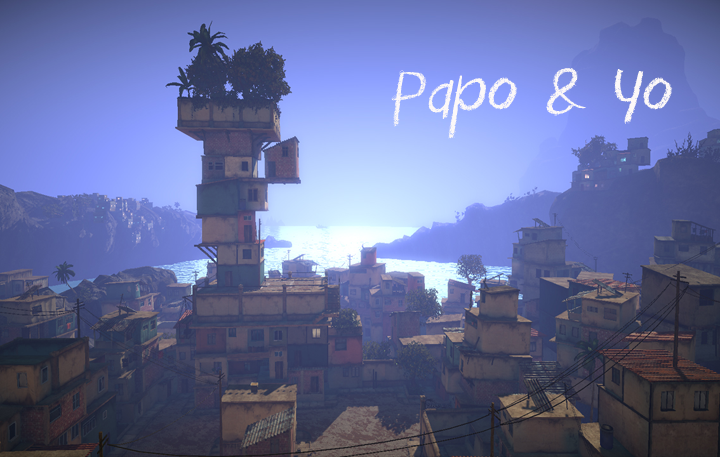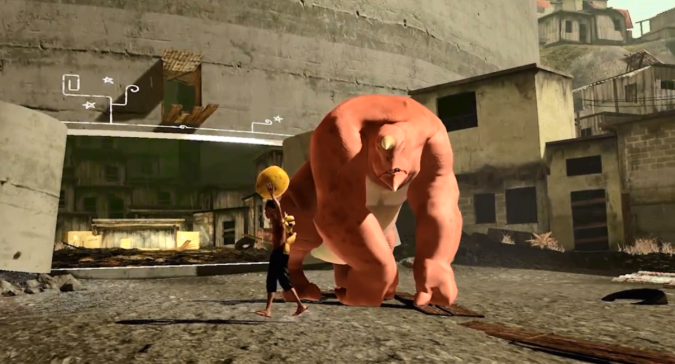This post has not been edited by the GamesBeat staff. Opinions by GamesBeat community writers do not necessarily reflect those of the staff.

Struggling against his mass, I gripped onto him as best I could until I was thrown into the metal towel bar. I deflated as it dug into my back…but it was enough for everyone to get away.
Many of the most vivid memories from my childhood, the ones that stick with me, are frightening montages of screaming, yelling, hitting, choking, and horror. My father was terrifying when he drank.
Papo & Yo creator Vander Caballero also suffered similar nightmares from an alcoholic father, and the video game he made to tell that story does a superb job of expressing the feelings and hardships children experience in a horrific life with few escapes.
The game itself is a generic puzzle platformer, but the story elevates it into an important experience. Papo & Yo takes that dire situation of growing up with an alcoholic parent, and explores those memories in parallel to lead character Quico's adventure in South American favelas with his monster.
Papo, or Monster, looks like a cross between a rhino and a gigantic gorilla, both unrecognizable and beyond your control. Similarly, my father came across as a gentle giant when sober. He was an ex-marine, able to bench 300 pounds, with a hulking figure full of love and care. But just like Papo, when a certain substance entered his body, he completely changed into something I couldn’t identify, something terrifying and uncontrollable filled with misguided indignation. He seemed like a fictional force that couldn’t be stopped by anyone but my fictional childhood heroes.
Quico's world reflects this, too.

The environment represents a child’s escape into imagination, full of fanciful details and opportunities for adventure. It’s also very quiet. Outside of the pleasing acoustic music playing in the background, the world itself is almost entirely mute. That's how I felt growing up: alone.
Where Papo and Quico play in South American favelas, I had the woods of Wisconsin…which also had a large number of frogs (Papo's substance-abuse substance) I would poke and prod. Soccer balls sat around with no one to kick them to. The woods — though full of adventures waiting to be had — all felt very lonely to me. I looked for something, but I never knew quite what I wanted to find.
While searching those woods, I sometimes needed my father to help me traverse an area. Just like in Papo & Yo, we relied on each other. At times, he would use his strength to help me up a tree. Other times, I tended to him when he passed out on our couch in our tiny trailer home, only for him to return later that night in another drunken rage. He might break a favorite toy that made me feel safe, just like Lula, protagonist Quico’s helpful robot toy. Sometimes my father just broke my dreams. I never knew what would happen that night.
In the end, Papo & Yo becomes about Quico vanquishing his monster. It’s what we all have to do when we grow up with an abusive parent.
I wonder what younger me would think about this game. I doubt I would've taken much interest in it, having already found a good home in role-plaing games and action-packed adventure games. But as an adult, it reminds me of important things, prompts me reflect on the hardships I grew up in, and makes me determined to never put my own children through those horrors.
This article originally appeared on GamingTruth.
